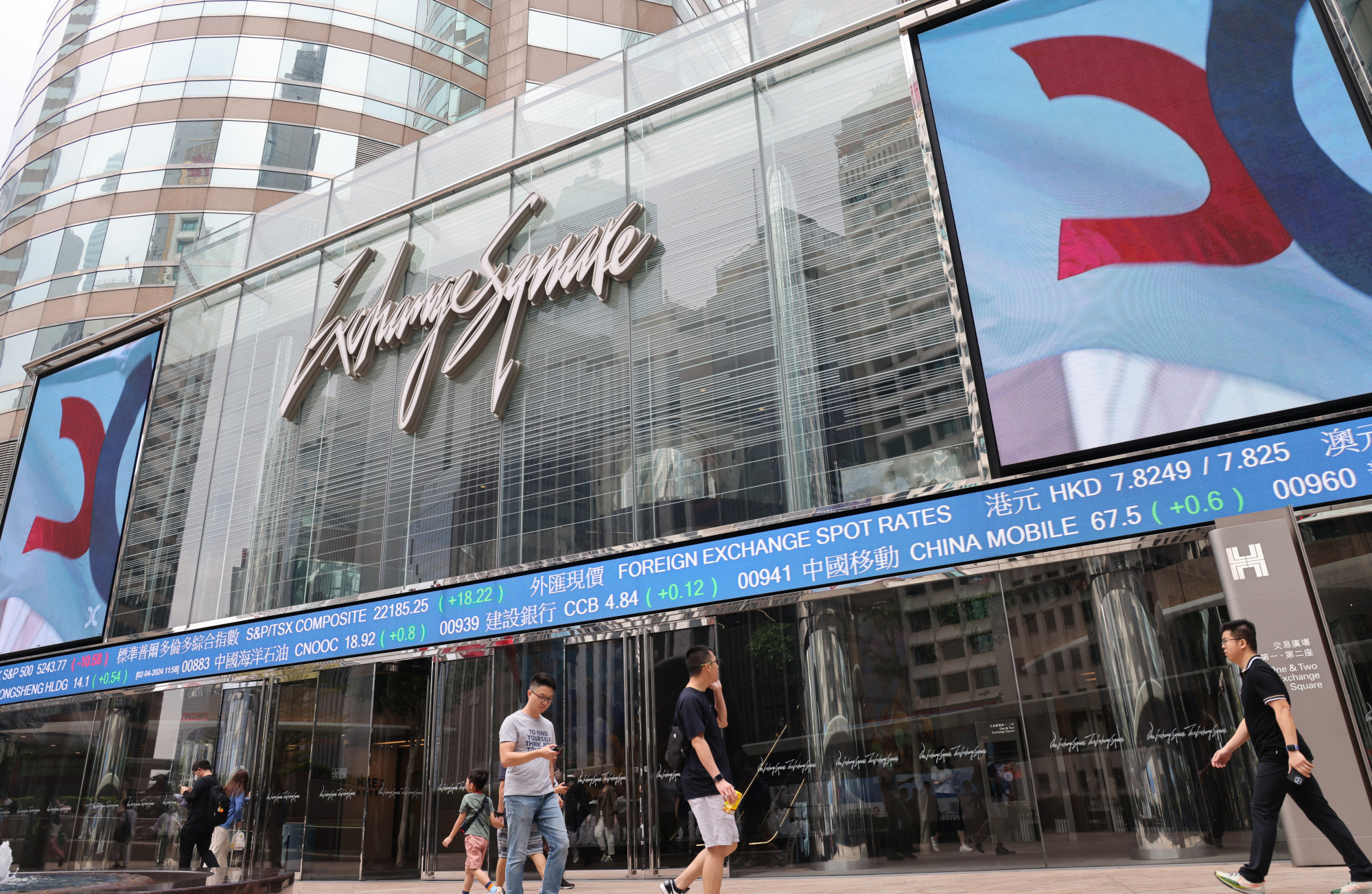The Hang Seng Index lost 2 per cent to 16,060.08 as of 11am local time, the lowest level since February 15. The Tech Index slipped 3.6 per cent, while the Shanghai Composite Index lost 0.5 per cent.
All but nine out of the 82 index members declined. E-commerce group Alibaba tumbled 2.6 per cent to HK$66.15, Tencent dropped 1.3 per cent to HK$300.40 and food delivery platform Meituan slipped 4.8 per cent to HK$93.10. Casino operator Sands China dropped 5.1 per cent to HK$17.92 and hotpot chain Haidilao lost 5.4 per cent to HK$15.76.
Concerns over escalating Middle East conflicts surged after Iran’s state media said the country has activated the air defence system after reported explosion near the Isfahan city. Oil prices soared taking Brent past the US$90 per barrel mark briefly.

“Recent reports of an Israeli aerial bombardment targeting a key nuclear facility in central Isfahan have sparked a significant shift out of risk assets and into safe-haven investments,” said Stephen Innes, a managing partner at SPI Asset Management.
Shares of upstream oil companies and gold producers were among gainers. CNOOC, China’s biggest offshore energy explorer, rose 2.3 per cent to HK$18.82 and Zijin Mining advanced 0.7 per cent to HK$17.82.
Adding to Hong Kong stocks’ miseries, Nomura downgraded the MSCI HK Index, which tracks the 30 markets heavyweights including AIA and HKEX, to underweight from neutral on Thursday in the Asia ex-Japan portfolio.
“Our call is largely driven by bottom-up views, as we struggle to find exciting single-stock ideas,” strategists including Chetan Seth said in a note. Large index stocks are lacking near-term catalysts, while domestic Hong Kong economy-focused stocks, such as utilities, property and banks, have weak growth prospects, they added.
The Hang Seng Index has lost 2 per cent so far this week, its worst performance since the last week of January, as China’s cloudy economic outlook, Fed’s “higher for longer” rates projection and rising Middle East tensions soured risk appetite.
Elsewhere, Li Auto tumbled 7.3 to HK$106.40, the lowest level since January 31, as the cutthroat competition in the electric vehicle (EV) intensified after the vehicle maker priced its new model cheaper than Tesla’s bestseller model. Rival BYD declined 3.7 per cent to HK$197.90 and Geely Auto lost 3.8 per cent to HK$8.71.
Asian markets fell across the board on the missile strike report. Japan’s Nikkei 225 Index tumbled 3.3 per cent, Korea’s Kospi lost 2.4 per cent while Australia’s S&P/ASX 200 declined 1.5 per cent.





